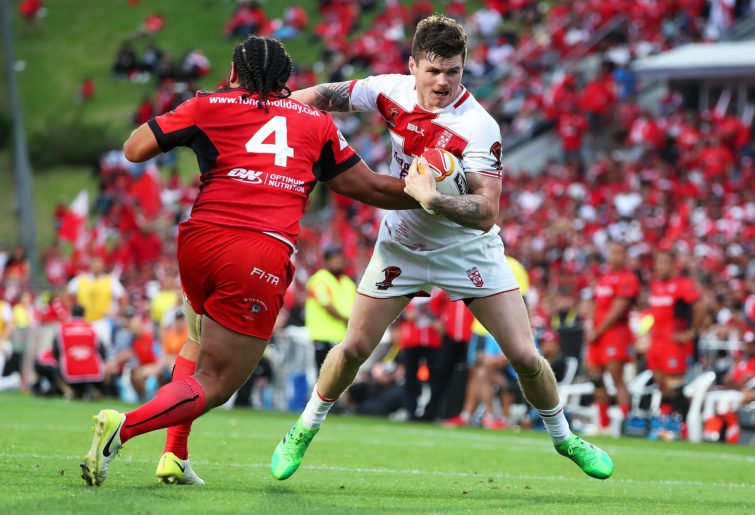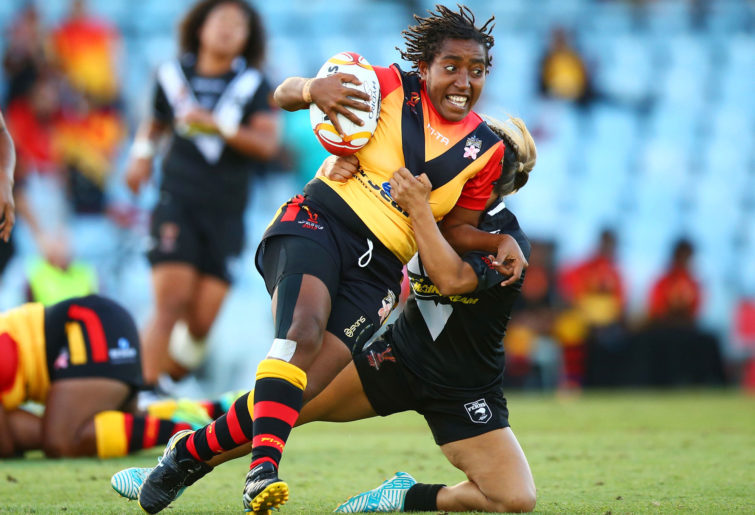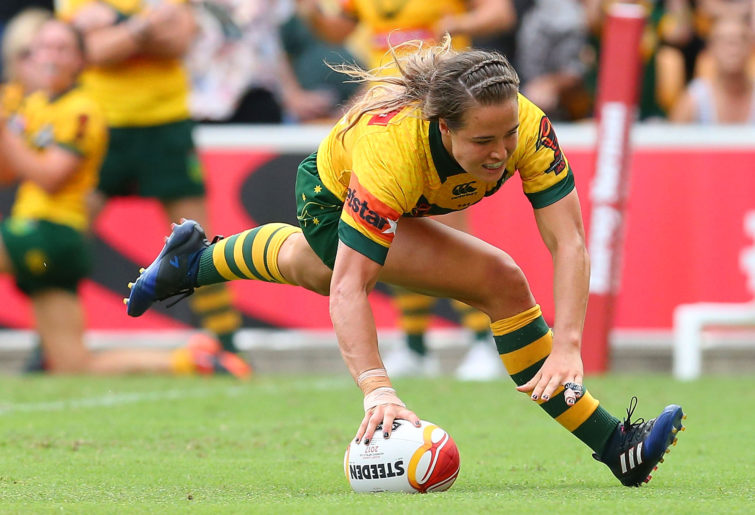The 2021 rugby league World Cup may still be over two years away, but after speaking with CEO of the tournament Jon Dutton last week, I was just about ready to book my plane ticket for the United Kingdom.
Jon and his team are hoping will be the most successful RLWC to date.
When the United Kingdom last hosted the RLWC in 2013, 14 nations competed. Fast forward eight years, the 2021 RLWC will see 32 teams competing across the men’s, women’s and wheelchair tournaments.
But for Jon and his team, success is about much more than ensuring the commercial viability of the tournament itself. The RLWC organising committee has a target of selling double the amount of tickets sold in 2017 and are planning to do that by creating an experience which transcends rugby league.
For Jon, the key is ‘going to market and convincing event goers that this tournament is something they want to be part of.’

The 2017 RLWC was a success. (Photo: Fiona Goodall/Getty Images)
A big part of convincing event goers of the significance of the tournament is centred around inclusivity and diversity and the women’s game is going to be a big part of that.There will be an additional two teams competing in the 2021 RLWC taking the total number of teams to eight – Australia, England, France, Canada, Papua New Guinea, Brazil, New Zealand and the Cook Islands.
When the teams were announced it was not without controversy with some teams that missed out not scared to show their disappointment. The Fijian coach Adrian Vowles took to Twitter and tweeted “you are f—ing kidding me”.
The teams were selected according to a criteria which included world ranking, growth and development activity in the nation and what the Organising Committee thought they could bring to the competition. Ultimately world ranking played a big role, which was problematic for nations like Fiji that had one played one ranking game.
Whilst Fiji missed out and some expressed their surprise at the inclusion of Brazil, there is doubt that Brazil will certainly add some flair to the competition and see South America represented in the tournament which is hugely significant given the continent’s disposition to football.

Della Audama of the PNG Orchids. (Photo by Mark Nolan/Getty Images)
In response to what is potentially a less than ideal way of selecting teams, Jon ‘firmly believes and hopes that that will be the last time that will ever happen and that participation and qualification in future tournaments will be decided by regional qualification and what happens on the field.’
Teams missing out demonstrates one of the greatest strengths and weaknesses of the women’s game and that is how quickly it is growing. Rugby league fans want more of the women’s game but this needs to be balanced alongside commerciality, player welfare and ensuring that the quality of competition remains high.
“Could we have had more teams? Yes. Could we have made the decision later? Yes. Would that have resulted in some different nations being in the RLWC – quite possibly. We stand by the process we devised and what we have seen is because of the growth of the women’s game that there were some nations that missed out.”
This growth has been enormous.
“In 2013 when the tournament was last held in the United Kingdom, the Women’s World Cup was part of the Festival of World Cups and all the women had to pay their own way to get here. Then in 2017, Andrew Hill and his team did a really fantastic job in elevating the women’s tournament, playing it alongside the men’s tournament and then staging a double header final in Brisbane. That set the bar very high for us.”
Given there is still two years to go until the tournament too, no doubt the game will grow even more between now and then, particularly in the UK where the Rugby Football League has a goal of getting 21,000 women and girls playing league by 2021.
The women’s game will be on show at the next RLWC alongside the men and the wheelchair tournament and with the next key milestone being the announcement of the draws in November, all three tournaments will then know which teams they will face off against.
There will also be a Physical Disability Rugby League World Cup and opportunities for competitors who play in the touch and tag versions of the game to participate too. The vision is a celebration of everyone who plays rugby league and who wants to put on a national shirt.
There will also be an Emerging Nations World Cup and that will take place in summer 2021. Someone will lift the first ever Women’s Emerging World Cup in 2021 which will create some real excitement leading into the RLWC itself.

Isabelle Kelly of the Jillaroos scores a try during the 2017 Rugby League Women’s World Cup Final (Photo by Jason McCawley/Getty Images)
But this tournament isn’t just about rugby league and focusing on the fixtures and instead developing programs which will engage the community to get involved in a variety of ways.
Jon acknowledges that “this is a non-traditional approach – we have a big dance program, choir program and we have a big public health program,”
“All these different programs have been developed to engage with people whose first interest may not be rugby league.
“We have to look after our core community, and help them take some ownership and be proud of this global sporting event and then reach out to the new community and say rugby league is a great game, come and have a great experience at the tournament.”
The key message from Jon is “come along and have a life experience; this is a chance for people to come enjoy the culture, heritage, play some rugby league and be part of something really special.”
Count me in.































































































